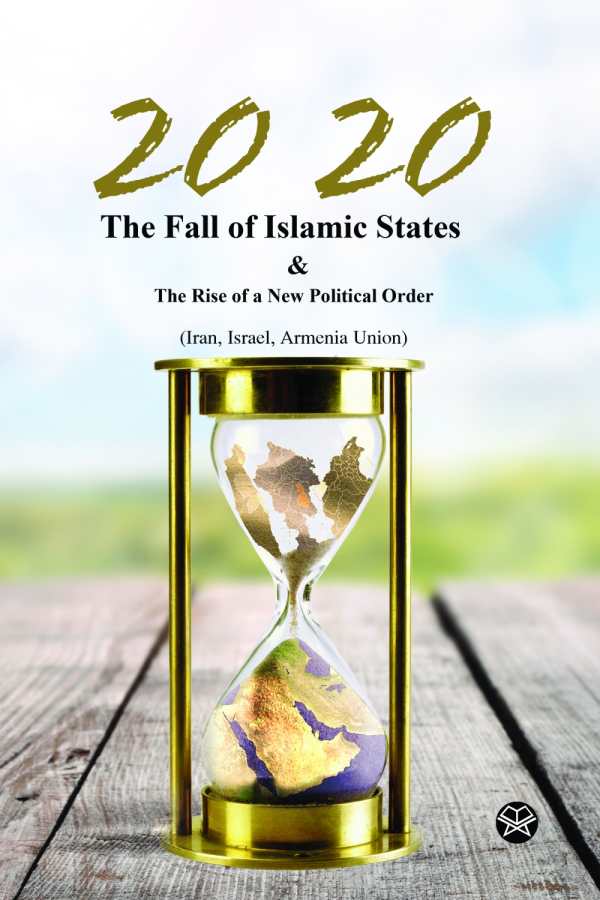
2020
The Fall of Islamic States & The Rise of a New Political Order (Iran, Israel, Armenia Union)
This intriguing book posits a unique solution for peace in the Middle East.
2020: The Fall of Islamic States & The Rise of a New Political Order (Iran Israel Armenia Union), the newest work from Sohrab Chamanara, finds hope for peace in the Middle East in the harmony of its past. Brazen idealism and historical literacy characterize this intriguing project.
Chamanara’s book begins by offering a bit of political prophecy: the chaos in the Middle East could calm down as soon as 2020, if countries considered each other’s enemies could instead embrace their commonalities. Armenia, Iran, and Israel are presented as the best prospects for achievement of the necessary international union.
The notion of the alignment of these countries challenges traditional notions of Middle Eastern discord, but in subsequent chapters, Chamanara sensitively outlines his reasoning: those three nations have a shared history of persecution, and as a result, each hungers for justice. “The only solution [to conflict] is education, education and more education,” the author offers, and the studiousness of his chapters reflects this belief.
Historical sketches help in drawing such connections, and begin with a breakdown of Arab and Muslim history. This summary contains some less familiar information (like the Jewishness of Muhammad’s first wife, Khadijah) as well as some harsh contentions, particularly related to the repeated use of Islam as a political tool for the purpose of conquering nations.
After establishing this background, Chamanara returns to the work of proposing new unity. He devotes quick chapters to primers on the Armenian genocide and the Holocaust, while also sharing Iran’s history as one characterized by needless upheavals and tragedies for its citizens.
This work does not go easy on Western intervention in Middle Eastern affairs, which is presented as something that only prolongs—and sometimes even provokes—international conflicts. Chamanara also strongly criticizes contemporary Iran and other Muslim states, particularly where radicals lead.
“Every event in the Middle East is related to Iran directly or indirectly,” he asserts. Later pages are dedicated to anticipating a sea change related to that influence, led by Iran’s regime-changing citizenry, with knowledgeable “young [people] and women” leading the way.
The persuasiveness of Chamanara’s arguments falls apart a bit as his projections unfold. The union referenced in the title depends on the quick evolution of nations; he anticipates an Israeli Prime Minister Tzipi Livni, a US President Hillary Clinton, and a rapid return to a more progressive Iran, as it had been prior to mid-twentieth century international interference. These few pages are fleshed out by appendixes reveling in the diversity of Iran in the last century, which may or may not fuel hope for a revival.
Chamanara tasks himself with doing considerable work in the span of less than two hundred pages, and as a result, the prose often seems seem clipped and its pace too swift. Compounding these reading challenges are occasional mistakes related to tense and agreement, as well as a tendency to interrupt the time line with quick reminders of past events.
Chamanara commands respect as a writer who clearly knows his subjects, and whose strong opinions are rooted in historicity, if not always realism. 2020 stands to pique interest, intrigue, and inform.
Reviewed by
Michelle Anne Schingler
Disclosure: This article is not an endorsement, but a review. The publisher of this book provided free copies of the book and paid a small fee to have their book reviewed by a professional reviewer. Foreword Reviews and Clarion Reviews make no guarantee that the publisher will receive a positive review. Foreword Magazine, Inc. is disclosing this in accordance with the Federal Trade Commission’s 16 CFR, Part 255.
